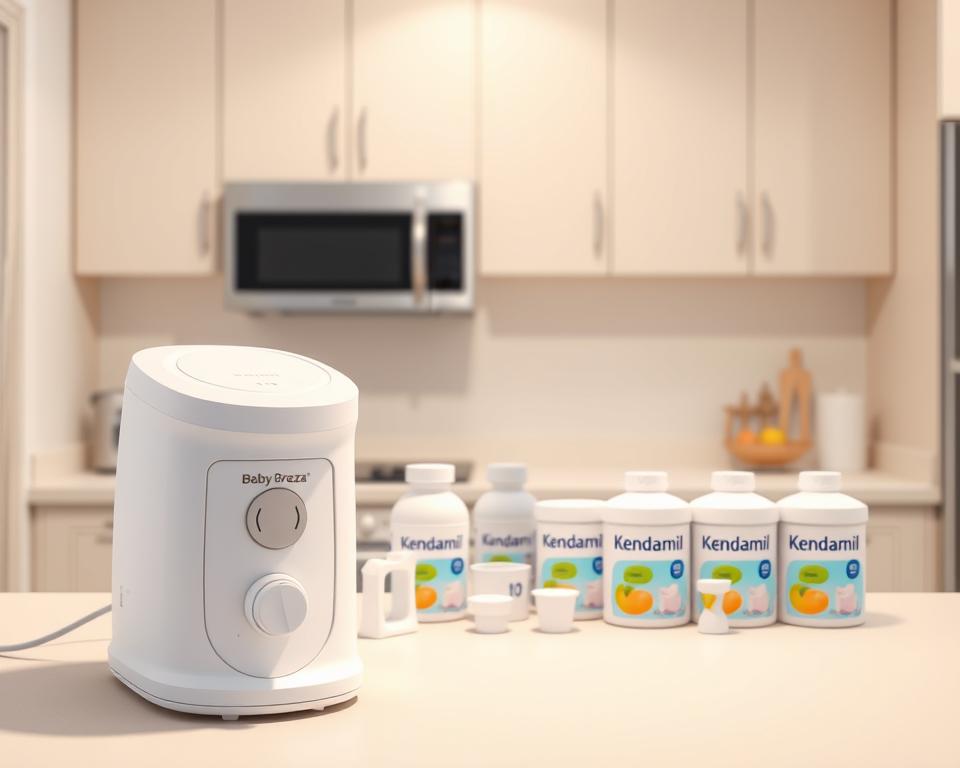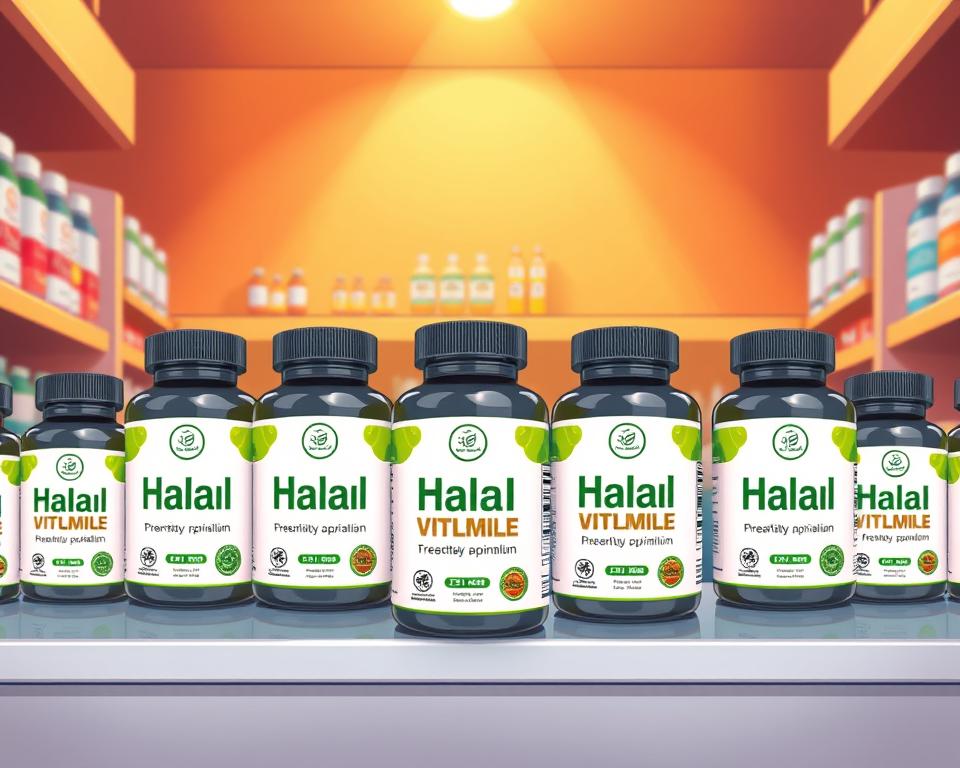Discover Top Organic Infant Formulas: Caregiver’s Guide
Almost eight in ten U.S. moms and dads rely on formula during their baby’s first year. This is often due to breastfeeding challenges. Picking the ideal most organic Baby formula matters greatly to these parents. This guide aims to assist parents in making informed decisions about the best organic formula for their babies.
We will examine various formulas and brands, focusing on quality and nutrition. Such details ensure your baby begins life on a strong nutritional foundation.
Choosing the right food for your baby is a critical decision for every parent. Interest in organic-based baby formulas has risen sharply. It delivers a purer nutrition source. Free from artificial pesticides and fertilizers, they offer infants a purer beginning.
Parents are increasingly mindful of the absence of harmful chemicals like GMOs and artificial additives. Such concerns drive the trend toward organic as a safer nutritional path.
Perks of Using Organic Elements
Certified organic components deliver notable advantages. These ingredients are rigorously tested, ensuring higher quality and safety. Selecting these formulas ensures infants escape dangerous additives.
The cultivation processes involved in organic farming emphasize sustainability and environmental preservation. Hence, selecting organic amplifies wellness and ecological care.
Associated Health Advantages
Organic nutrition often supports better infant growth outcomes. Research shows organic-fed infants tend toward fewer tummy troubles and allergy risks. This can be attributed to the pure formulation free from synthetic additives.
Moms and dads value how organics deliver complete nourishment. They bolster development and holistic infant health.

Key Features to Look for in Organic Baby Formula
Picking the top organic formula plays a huge role in infant health. Examine both protein origins and vital micronutrients. How proteins are sourced and balanced impacts digestion and nourishment. Awareness of critical vitamins and fats secures optimal development and health.
Protein Sources and Ratios
Formulas typically blend whey with casein proteins. Whey breaks down quickly and casein releases nutrients gradually. A whey-lean blend suits delicate infant digestion. Organic brands usually prioritize elevated whey levels for ease of digestion. Choose products that specify their protein blend and proper proportions.
Essential Nutrients and Additives
It’s vital to consider the essential nutrients in infant formula for development. DHA and ARA are critical for brain and eye health. Prebiotics also play a role in digestive health and immune system strength. Verify the presence of these compounds for comprehensive nutrition. These organics provide robust nutrient profiles.
| Protein Source | Benefits | Whey-to-Casein Ratio |
|---|---|---|
| Whey | Easier digestibility|Gentle on tummies|Quick absorption | Higher ratio is better|Lean whey blend preferred|Above 60% ideal |
| Casein | Slow release of nutrients|Sustained nourishment|Stomach-friendly over time | Lower ratio preferred in early months|Casein kept minimal|Around 40% or less |
Top-Rated Organic Formula Brands
Caregivers frequently choose reputable names for organic formula. Below are notable labels and what makes them special. They lead the organic formula market, serving diverse dietary demands.
Kendamil: The Whole Milk Option
Kendamil is unique as the only organic baby formula made with whole milk. Enjoy its luscious consistency free from unwanted chemicals. Caregivers favor it for its simple, clean ingredients. You can easily purchase Kendamil with a few clicks.
HiPP Combiotik: The Gentle Choice for Sensitive Tummies
Engineered for delicate tummies, HiPP Combiotik minimizes distress. It includes prebiotics and probiotics for better digestion. Parents often choose HiPP for its commitment to organic, high-quality ingredients, making it a favorite in organic baby food shops.
Holle Bio: Trusted European Quality
Holle Bio is renowned for its biodynamic farming practices, providing premium certified organic formula. It’s known for its rigorous quality control and commitment to health and the environment. Caregivers opt for Holle because of its genuine flavor and nutrient profile.
Aussie Bubs Grass-Fed Blend
Its grass-fed milk basis boosts vitamins and minerals naturally. All components reflect a back-to-nature approach. Its unique approach makes it easy for parents to spot quality in organic baby formulas.
Bobbie’s Contemporary Organic Blend
Bobbie merges innovation and organic integrity for baby formulas. Balances modern nutrition science with certified organics. Moms and dads trust Bobbie for its evidence-based, organic formula.
Choosing the right organic formula for your baby requires careful thought about their dietary needs. Recognizing food sensitivities helps you avoid tummy troubles. Component choices matter for infants prone to digestive issues.
Assessing Dietary Sensitivities
Some babies show intolerance to specific proteins or sugars. Look for formulas designed for sensitive infants. For instance, organic formulas for sensitive tummies often have less lactose or proteins that are partially hydrolyzed. They work to calm upset stomachs and nurture gut balance.
Seek medical advice to confirm the best feeding option.
Prioritizing Gut Ease
Ease of digestion hinges on selecting a formula made for comfort. Formulas enriched with prebiotics and probiotics aim to boost digestive comfort. By fostering beneficial bacteria, they enhance absorption and gut health.
Mothers supplementing with formula can find options mimicking breast milk nutrients.
How to Transition to Organic Baby Formula
You can transition infants from breastfeeding or standard formula to organic smoothly. It’s important to understand how to transition your baby to formula for both your comfort and theirs. Slowly shifting ratios eases acceptance and prevents distress.
Phased Introduction
Start by introducing organic baby formula gradually. Use this plan for the gentlest switch:
- Mix ¼ organic into ¾ existing formula to start.
- Over the next week, gradually increase the proportion of organic formula while decreasing the traditional formula.
- If distress appears, reduce the organic increment and proceed more slowly.
- Offer the organic baby formula at controlled times during the day to help your baby associate it positively.
- Stick to a feeding routine, as consistency can make the transition smoother.
Signs of Good Acceptance
Observing positive cues lets you know the switch is working:
- Your baby feeds comfortably without fussiness.
- Stool patterns stay even, and digestion remains smooth.
- Hunger levels and feeding frequency stay stable.
- Your baby appears happy and content after feedings.
Successful organic baby formula acceptance can take time, but these signs indicate a positive adjustment to the new nutrition.
Organic vs. Standard Baby Formulas
Caregivers often debate organics versus conventional formula for baby’s diet. This decision is critical for understanding which option best meets their baby’s dietary needs. Concern over pure components and wellness perks drives the decision.
Composition Breakdown
What goes into each formula type highlights their distinction. Organic formulas opt for natural components, excluding artificial additives, flavors, and preservatives. Labels such as HiPP and Kendamil source from eco-friendly dairies. On the other hand, traditional formulas might include synthetic nutrients or non-organic ingredients. This highlights the organic formulas’ focus on natural, wholesome nutrition.
Price Differences
The price of organic baby formula often reflects the higher standards for ingredient sourcing and production. Organic formulas are generally pricier than traditional ones due to the costs of organic certification. Caregivers often deem the extra expense justified by wellness gains. Understanding the price and perceived value helps parents make a choice that fits their budget and values.
Digital retailers have transformed organic formula purchasing. Now, they can purchase top-notch formulas from home. Online options cover everything from hypoallergenic to grass-fed blends.
Online Retail Advantages
Online shopping brings numerous benefits for parents with hectic schedules. Convenience: Order from anywhere without the need to visit a store.
- Time-saving ordering
- Endless formula choices online
- Online deals and sales help reduce costs
Subscription Services Explained
Scheduled formula deliveries are on the rise. Set-and-forget deliveries ensure you never run out.
Top subscription benefits are:
- Regular shipments keep cabinets full
- Set delivery intervals to match your consumption rate
- Save money with recurring order deals
Regulations Governing Organic Infant Nutrition
Maintaining high standards for organic formulas involves strict oversight. A web of rules ensures product safety and authenticity. FDA mandates safeguard formula nutrient profiles and hygiene. USDA organics approval confirms true organic sourcing. Awareness of regulations boosts caregiver confidence.
FDA Oversight and Standards
The FDA is instrumental in regulating the infant formula market in the U.S. Their strict guidelines cover nutrient requirements and permissible ingredients. Such rules guarantee balanced nourishment for infants. Key aspects include:
- Mandatory ingredient listings|Required ingredient disclosures|Compulsory component labeling
- Specific nutrient requirements such as protein, fats, and vitamins|Defined macro- and micronutrient thresholds|Preset nutrition minimums
- Comprehensive quality control measures during manufacturing|Rigorous production inspections|Stringent safety checks
Following these rules means infants receive only approved formulas.
Organic Labeling Standards
USDA organics seals mark trusted formula authenticity. The certification process involves several essential criteria. Major requirements are:
- Proof that ingredients are produced without synthetic fertilizers or pesticides|No chemical fertilizers or sprays used|Farm inputs must be 100% natural
- Verification of non-GMO (genetically modified organism) status|Guarantee of GMO-free sourcing|Strict non-GMO testing
- Clear guidelines on the handling and processing of organic products|Protected organic integrity during production|Certified organic processing rules
USDA label confirms field-to-formula organics. It secures a cleaner start for baby nutrition. The combination of USDA certification with FDA regulations provides parents with confidence in their baby’s nutrition.
| Regulatory Aspect | Description |
|---|---|
| FDA Regulations | Sets safety and nutrient standards for infant formula |
| USDA Organic Certification | Ensures organic ingredients are grown without harmful substances |
| Quality Control | Mandatory checks during production processes |
| Ingredient Transparency | Clear labeling of all components for consumer knowledge |
Tips for Buying Organic Baby Formula
Choosing the right organic baby formula can seem daunting. However, these pointers help caregivers choose with confidence. Being aware of sources and certifications eases the purchase.
Where to Buy Organic Baby Formula Online
Multiple web shops carry extensive organic formula lines. You’ll find periodic discounts online. Here are some top choices:
- Amazon – Renowned for choice and quick dispatch
- Target – Provides flexible shipping and pickup services
- Walmart – Provides both online shopping and local availability
- Thrive Market – Focuses on health-conscious products, including organic options
Always read customer reviews before buying. They help assess the product’s quality and the retailer’s reliability.
Understanding Labeling and Certifications
Understanding labels and certifications is vital when buying organic baby formula. Seek official seals verifying organic compliance. Typical certifications are:
| Certification | Description |
|---|---|
| USDA Organic | Indicates the formula contains at least 95% organic ingredients |
| Non-GMO Project Verified | Means the formula does not use genetically modified organisms |
| European Union Organic | Denotes adherence to EU organic farming regulations |
Recognizing seals guarantees purity and health.
The Final Word
To wrap up, careful formula selection supports optimal baby development. Organics bring peace of mind beyond mere nutrition. Your baby receives balanced nourishment free from chemicals. Parents have discovered key factors to consider, such as protein sources, dietary sensitivities, and the reputation of brands like Kendamil, HiPP Combiotik, and Holle Bio.
This article highlighted the need for formulas that meet your baby’s specific needs. Switching to organics requires a thoughtful approach. Slow steps keep baby happy and well.
Guided by these pointers, you’ll choose with confidence from many choices. Opting for organic feeding fosters lifelong nutritional good habits. Let’s continue to prioritize quality nutrition for our babies. Ensure every tiny step toward solid foods starts with safe, wholesome options.


